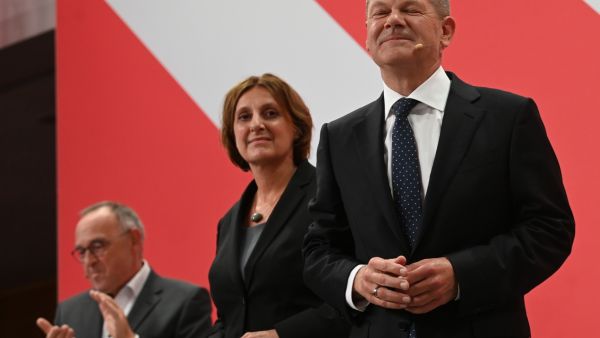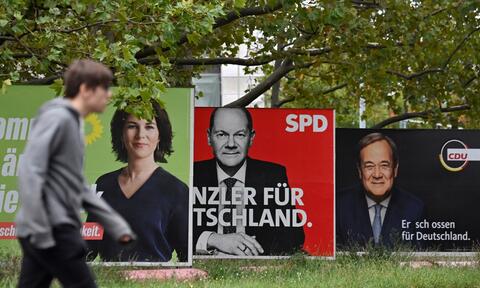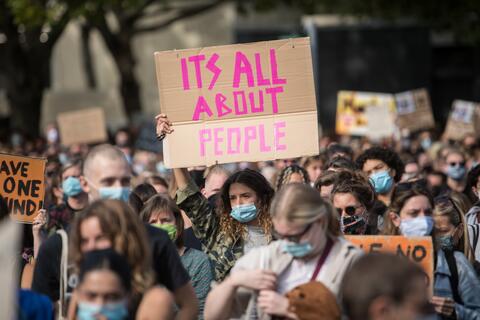Preliminary official results revealed on Monday shows that Germany’s Social Democratic Party (SPD) gained the most parliamentary seats in national election, while Angela Merkel’s conservative CDU/CSU bloc came in second.
Germans voted Sunday in a very tight election to elect a new parliament and determine who will succeed Merkel as the country’s next chancellor.
Breaking News: The Social Democrats narrowly defeated Angela Merkel’s party in Germany, but her successor won’t be decided until a coalition deal is negotiated. https://t.co/laXekHNfZd
— The New York Times (@nytimes) September 27, 2021
Olaf Scholz’s SPD won the election by a narrow margin, gaining 25.7% of the vote and securing 206 seats in the federal parliament, according to the preliminary results announced by the federal election agency.
Conservative chancellor candidate Armin Laschet’s CDU/CSU came in second with 24.1% with 196 seats in the Bundestag. It was the worst election result of the Christian Democrats since 1949.
The Social Democrats have secured a narrow victory in the election but fell short of a parliamentary majority, signaling that the country is heading for a three-way coalition government for the first time since the 1960s.
German national elections too close to be called, polls suggest, as leading candidates hold final rallies https://t.co/EYKgzC9dCJ
— ExBulletin (@ExBulletinUk) September 25, 2021
Germany's chancellor is elected indirectly, with voters choosing new parliament members who then determine the new chancellor with a vote among themselves.
If the winning party secures a majority in parliament or manages to build a coalition government with an absolute majority, its candidate usually becomes the country's next chancellor.
After 16 years in power, Merkel is quitting active politics but will remain in her post until a new government is formed.
This article has been adapted from its original source.











